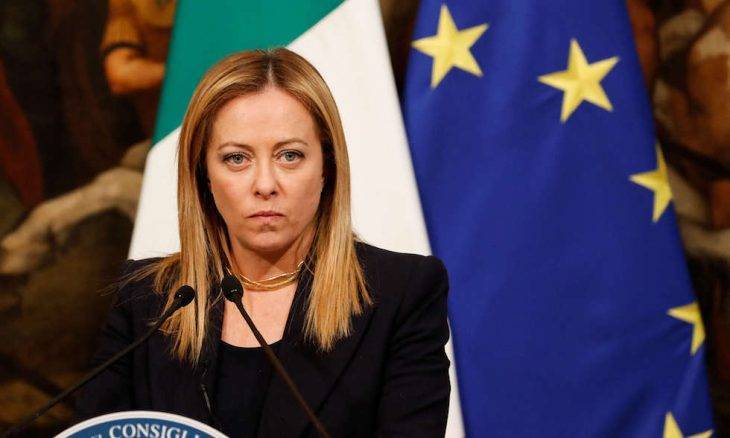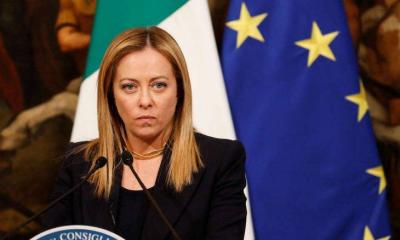Mediterranean and other countries from the Middle East and Africa agreed on several steps on Sunday to attempt to slow the pace of irregular migration and alleviate pressures pushing migrants to leave their countries in search of reaching Europe. Following a one-day meeting chaired by Italian Prime Minister Giorgia Meloni, the new coalition announced its commitment to crack down on human trafficking and increase cooperation in areas such as renewable energy to combat climate change and improve the future of impoverished countries.
Participants in the meeting, representing more than 20 countries, agreed to provide necessary funding to support development projects in what Meloni referred to as the "Rome Process," which will continue for several years. Meloni welcomed the commitment announced by the UAE to provide $100 million and stated that the next step is to organize a donors' conference. She added that the Italian government is open to receiving more individuals through legal pathways because "Europe and Italy need migration," softening her previous hardline stance on the issue.
However, she emphasized the need for further steps to prevent migrants from attempting to cross the Mediterranean on dangerous journeys using illegal routes. She continued, "Stopping human trafficking networks is a goal we all share." The European Union and Tunisia, a key departure point for migrants, signed a "strategic partnership" agreement last week that includes cracking down on human traffickers and tightening border controls.
European Commission President Ursula von der Leyen stated at the conference, "We want our agreement with Tunisia to be a model... for the future... in order to establish partnerships with other countries in the region." Tunisian President Kais Saied emphasized in his speech that addressing irregular migration cannot be done individually or through bilateral agreements, urging the international community to seek solutions after identifying the motivations and causes. He asserted that Tunisia, which abolished slavery in 1874, cannot accept a return to slavery through irregular migration and will not accept the covert settlement of irregular migrants nor be a transit or settling point for lawbreakers.
Libya's Presidential Council head, Mohammed Menfi, called on wealthy countries to lend a helping hand, stating, "We are ready to actively participate to stop the suffering of migrants."
In the Vatican, Pope Francis delivered a speech to crowds in St. Peter's Square, urging European and African governments to assist migrants stranded in the desert regions of North Africa and to ensure that the Mediterranean never becomes a "theater of death" again for those attempting to cross to Europe.
Italy is struggling to cope with the number of irregular migrants arriving on its shores, particularly on the southern island of Lampedusa. However, it is also facing a high aging population and a declining number of residents, necessitating more workers to support its economy. This month, Italy pledged to issue 452,000 new work visas for individuals from outside the EU from 2023 to 2025, increasing the number of work permits available annually to 165,000 by 2025. Italy issued only 30,850 visas in 2019, before the outbreak of the Corona pandemic. The number of arrivals in Italy has increased this year, with more than 83,000 people reaching its shores compared to about 34,000 during the same period last year.




